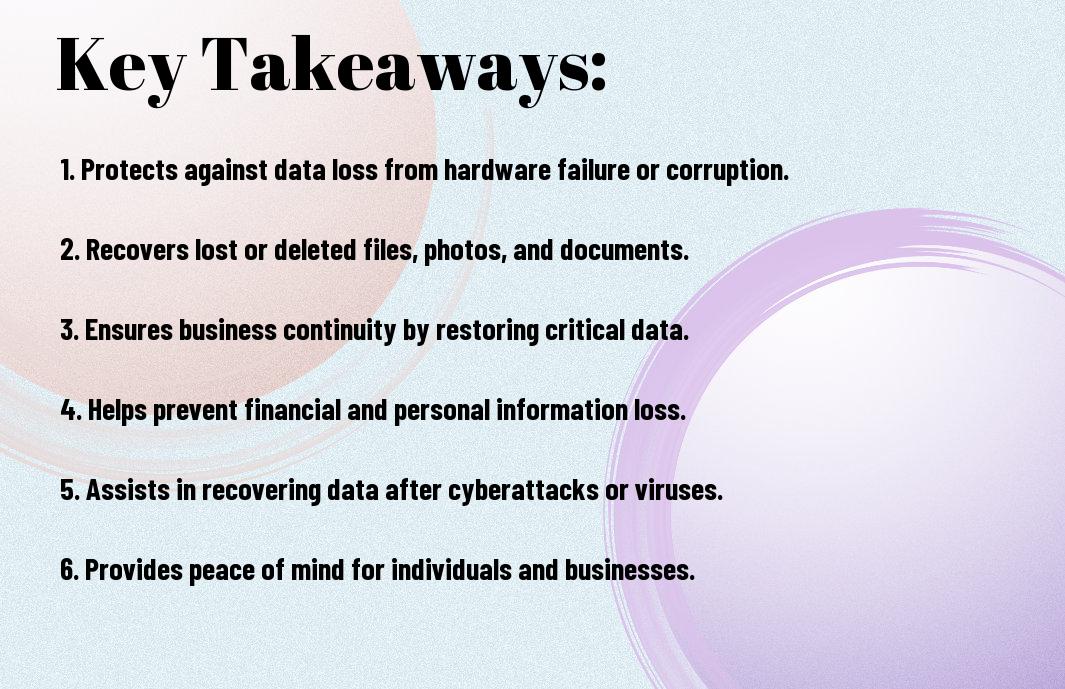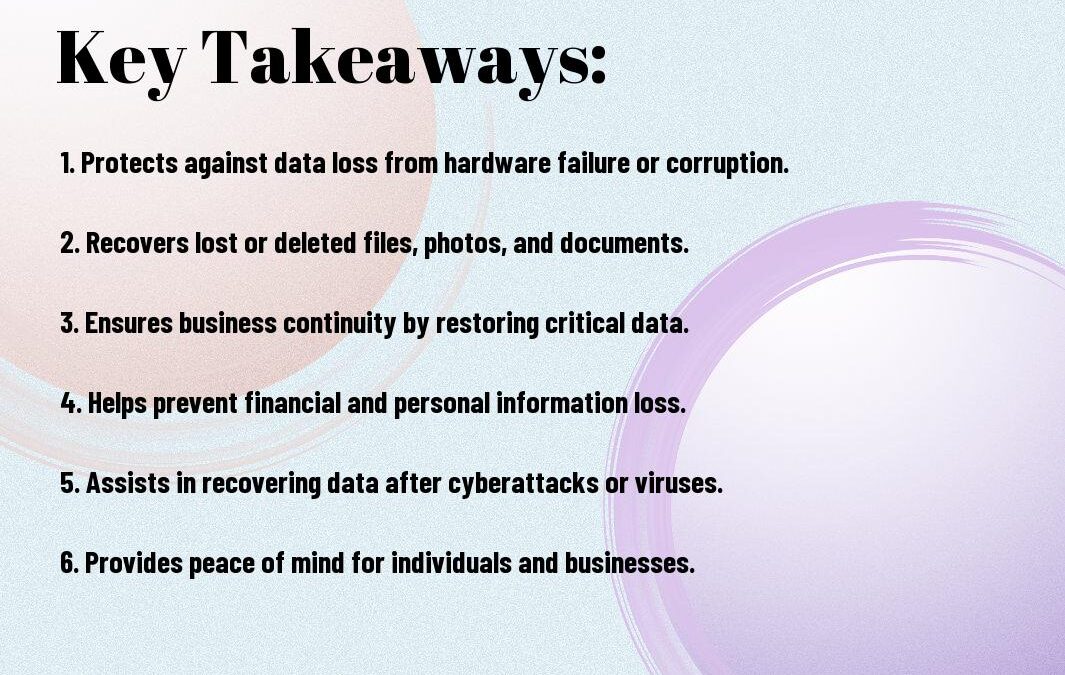Data, the lifeblood of modern society, fuels our digital existence. In a world where our entire lives are stored in bytes and bits, the importance of safeguarding this data cannot be overstated. Data recovery services play a critical role in ensuring that we can retrieve valuable information when technology fails us. Let’s investigate into the importantity of data recovery services in today’s fast-paced and data-driven world.

The Rise of Digital Dependence
The Increasing Reliance on Digital Data
As we propel further into the digital age, our lives are becoming increasingly intertwined with technology. From personal documents to crucial business operations, digital data has become the backbone of modern society. We store our memories, conduct transactions, and manage our schedules through digital means, highlighting the critical role that data plays in our daily lives.
The Consequences of Data Loss
On the flip side, the potential for data loss looms large in our digital landscape. Whether through hardware malfunctions, cyberattacks, or accidental deletion, the ramifications of losing vital data can be catastrophic. From financial records to irreplaceable photos, the loss of data can disrupt businesses, cause emotional distress, and even put individuals at risk of identity theft.
Increasingly, individuals and organizations are turning to data recovery services to salvage lost data and mitigate the consequences of data loss. These specialized services employ cutting-edge technology and expertise to retrieve valuable information from damaged or compromised storage devices, offering a lifeline in critical situations where data recovery is vital.
The Complexity of Data Recovery
The Challenges of Retrieving Lost Data
Any digital device is susceptible to data loss, which can be caused by various factors such as accidental deletion, hardware failure, or cyberattacks. The process of recovering lost data can be intricate and time-consuming, requiring specialized knowledge and tools.
The Importance of Professional Expertise
Retrieving lost data is not just about running software programs. It involves a deep understanding of file systems, data structures, and complex algorithms. Professional data recovery experts have the skills and experience to deal with challenging data loss scenarios, ensuring a higher success rate in recovering valuable information.
A professional data recovery service provider employs technicians who are trained to handle a wide range of data loss situations effectively. They can navigate through the complexities of different storage devices and file systems, using advanced techniques to retrieve data without causing further damage.
The Benefits of Data Recovery Services
Preventing Financial Losses
All businesses rely on data for their operations, and losing this critical information can result in significant financial losses. To prevent these setbacks, investing in data recovery services is crucial. These services can help retrieve lost data promptly, minimizing downtime and potential revenue loss.
Protecting Sensitive Information
An integral part of data recovery services is the protection of sensitive information. With cyber threats on the rise, ensuring that your data is secure and retrievable is paramount. By entrusting experts to handle your data recovery needs, you can safeguard confidential information from unauthorized access or breaches.
Ensuring Business Continuity
Sensitive data forms the backbone of any business, and its loss can disrupt operations and harm reputation. By employing data recovery services, organizations can ensure uninterrupted business operations in the face of unexpected data loss. This proactive approach not only safeguards critical information but also maintains business efficiency and customer trust.
Conclusion
The importance of data recovery services in today’s digital age cannot be overstated. With the increasing reliance on technology for both personal and business operations, the risk of data loss is higher than ever. Investing in data recovery services ensures that valuable information can be retrieved in case of unexpected incidents, safeguarding against potential disasters and ensuring continuity in an increasingly digital world.

